Hey everyone! So, we’re chatting about something super important for comfy homes, especially here in India:
HVAC systems. You might hear the term thrown around, but what is HVAC? And how does it make our homes feel just right, whether it’s scorching hot or a bit chilly outside? We’re gonna break it all down, simple and easy, so you get the full picture of how these systems keep us cool, warm, and breathing fresh air.
Key Takeaways
HVAC stands for Heating, Ventilation, and Air Conditioning – it’s all about controlling your indoor climate.
Heating helps us stay warm during those cooler Indian winters, even if they’re short.
Ventilation brings in fresh air and gets rid of stale air, which is super important for good health.
Air conditioning is key for beating the intense Indian heat and humidity.
HVAC systems work by moving heat around, kind of like how your fridge keeps food cold.
Ductwork is like the air’s highway, sending conditioned air all over your house.
Split ACs and window units are common in Indian homes because they’re easy to install for single rooms.
Keeping your HVAC system in good shape means it works better, saves energy, and keeps your home comfy.

Understanding the Basics: What Does HVAC Stand For?
Let’s break down what HVAC means. It’s an acronym, and it stands for Heating, Ventilation, and Air Conditioning. These three functions work together to control the temperature and air quality inside buildings, making our homes and offices comfortable year-round.
It’s more than just cooling; it’s about creating a healthy and pleasant indoor environment. You might be wondering about the HVAC diploma and what it entails.
Heating: Keeping Warm in Indian Winters
While India is known for its heat, many regions experience surprisingly cold winters. Heating systems are essential in these areas to maintain a comfortable indoor temperature.
These systems can range from simple electric heaters to more complex central heating setups. We often take heating for granted, but imagine trying to get through a Delhi winter without it! It’s not just about comfort; it’s also about preventing health issues related to the cold.
Ventilation: The Importance of Fresh Air
Ventilation is all about bringing fresh air inside and removing stale or contaminated air. This is super important for maintaining good air quality and preventing the buildup of pollutants, moisture, and odors.
Proper ventilation can reduce the risk of respiratory problems and improve overall well-being. Think of it as letting your house breathe! There are different types of ventilation systems, from natural ventilation (opening windows) to mechanical ventilation (using fans and ducts).
Air Conditioning: Beating the Indian Heat
Air conditioning is probably the most well-known aspect of HVAC, especially in India. With scorching summers in many parts of the country, AC is a necessity for staying cool and comfortable.
AC systems work by removing heat and humidity from the air, providing a refreshing escape from the outside heat. The difference between HVAC and AC is that AC is just one component of the broader HVAC system. While AC focuses solely on cooling, HVAC encompasses heating, ventilation, and air conditioning for comprehensive climate control.
HVAC systems are designed to do more than just heat or cool a space. They aim to improve indoor air quality and create a comfortable and healthy environment for occupants. This includes controlling temperature, humidity, and air circulation.
Here’s a quick comparison:
Feature | Air Conditioning (AC) | HVAC (Heating, Ventilation, and Air Conditioning) |
|---|---|---|
Primary Function | Cooling | Heating, Cooling, Ventilation, Air Quality |
Scope | Limited | Comprehensive |
Components | AC Unit | AC Unit, Furnace/Heater, Ventilation System, Air Purifier, Thermostat |

How HVAC Systems Work: The Core Principles
Refrigeration Cycle Explained
Okay, so How does the HVAC system work? Let’s break down the refrigeration cycle, which is the heart of how your AC cools your home. It’s all about moving heat from inside to outside. First, a refrigerant absorbs heat as it evaporates in the indoor coil, turning it into a gas. Then, this gas is compressed, raising its temperature even further.
Next, the hot, high-pressure gas flows to the outdoor coil, where it releases heat and condenses back into a liquid. Finally, the liquid refrigerant passes through an expansion valve, which reduces its pressure and temperature, and the cycle starts all over again. This continuous loop is what keeps your home cool.
Air Distribution and Ductwork
Think of your ductwork as the veins and arteries of your HVAC system. It’s how the conditioned air gets from the unit to every room in your house. Proper air distribution is key for even temperatures and comfort. Here’s what we should keep in mind:
Ducts need to be properly sized to handle the airflow requirements of each room.
Insulation is important to prevent heat loss or gain as the air travels through the ducts.
Sealing any leaks in the ductwork is crucial for efficiency. Leaky ducts can waste a lot of energy and reduce the system’s effectiveness.
Maintaining your ductwork is a big part of HVAC troubleshooting guide. Regular inspections and cleaning can prevent problems and keep your system running smoothly. If you notice uneven temperatures or reduced airflow, it might be time to check your ducts.

Types of HVAC Systems Common in Indian Homes
Okay, let’s talk about the kinds of HVAC systems we usually see in Indian homes. It’s not a one-size-fits-all situation, and what works best really depends on the size of your place, your budget, and your personal preferences. We’ll break down the most common types so you can get a better idea of what might be right for you.
Split AC Systems
Split ACs are probably the most popular choice in India, and for good reason. They’re relatively affordable, easy to install, and pretty efficient for cooling individual rooms. The basic setup involves an indoor unit that blows out cool air and an outdoor unit that houses the compressor and other components.
Here’s a quick rundown:
Indoor unit: Mounts on your wall and cools the room.
Outdoor unit: Sits outside and gets rid of the heat.
Ductless: No need for extensive ductwork, making installation simpler.
Energy-efficient models: Can help with How to reduce electricity bills with HVAC.
Window AC Units
Window ACs are the oldfaithfuls. They’re the most budget-friendly option upfront, and they’re super easy to install – you literally just stick them in a window. However, they’re generally less energy-efficient than split ACs and can be quite noisy. Plus, they block your window, which isn’t ideal. They are a simple solution for cooling a small room, though.
Centralized HVAC Systems (Less Common but Growing)
Centralized HVAC systems are more of a luxury in Indian homes, but they’re becoming increasingly popular, especially in larger houses and apartments. These systems use a central unit to cool or heat the entire home through a network of ducts.
While the initial investment is higher, they offer consistent temperature control and can be more energy-efficient in the long run for larger spaces. Thinking about Split AC vs Central AC? Here’s the deal:
Centralized systems are great for whole-house cooling, but they require professional installation and ductwork. Split ACs are better for individual rooms and are easier to install. It really depends on your needs and budget.
Here’s a quick comparison:
Feature | Split AC | Centralized HVAC | Window AC |
|---|---|---|---|
Cost | Moderate | High | Low |
Installation | Relatively Easy | Complex | Very Easy |
Energy Efficiency | Good | Very Good (Large Spaces) | Fair |
Noise Level | Low | Low | High |
Choosing among the Types of air conditioning systems can be tough, but hopefully, this gives you a clearer picture of what’s out there. Don’t forget to research the Best HVAC systems in India before making a decision!
Benefits of a Well-Maintained HVAC System in India

We all know how brutal the Indian climate can be, right? From scorching summers to chilly winters, our homes take a beating. That’s where a good HVAC system comes in, but it’s not enough to just have one. We need to keep it in tip-top shape! Let’s talk about why maintaining your HVAC is so important, especially here in India.
Heating: Keeping Warm in Indian Winters
Okay, so maybe not everywhere in India gets super cold, but many regions do experience a significant drop in temperature during the winter months. A well-maintained HVAC system ensures that your heating works efficiently, keeping your home cozy without skyrocketing your electricity bill.
Think of it this way: a clean filter means your system doesn’t have to work as hard to pump out that warm air.
Plus, regular checks can catch small problems before they turn into major, expensive repairs. We’ve all been there, right? A little preventative care goes a long way.
Ventilation: The Importance of Fresh Air
Ventilation is often overlooked, but it’s super important for our health. A properly functioning HVAC system helps circulate fresh air throughout your home, reducing the buildup of pollutants, allergens, and even that stale, stuffy air we all hate.
This is especially important in urban areas where air quality can be poor. Good ventilation can significantly improve your indoor air quality, making your home a healthier and more comfortable place to live. Plus, it helps control humidity, which can prevent mold growth – a big problem during the monsoon season.
Air Conditioning: Beating the Indian Heat
Let’s be real, the main reason most of us have HVAC systems in India is to survive the summer heat. A well-maintained AC unit is crucial for keeping your home cool and comfortable during those sweltering months.
Regular servicing ensures that your AC is running at peak efficiency, which means lower energy bills and a more consistent temperature throughout your home. Nobody wants that one room that’s always hotter than the rest, right? Plus, a clean AC unit is less likely to break down when you need it most. Think about scheduling a regular AC checkup before the summer heat hits!
Maintaining your HVAC system isn’t just about comfort; it’s about saving money, improving your health, and ensuring that your system lasts for years to come. It’s an investment in your home and your well-being.
Here’s a quick look at some of the benefits:
Lower energy bills
Improved air quality
Fewer breakdowns
Longer lifespan for your system
Increased comfort
Consider the benefits of inverter AC units, which are becoming increasingly popular for their energy efficiency.
And remember to consult an HVAC maintenance checklist to keep your system running smoothly.
Conclusion
So, we’ve talked a lot about HVAC systems, and hopefully, you’ve got a better idea of what they’re all about. These systems do more than just make a room hot or cold. They help keep the air inside clean and fresh, which is super important for us, especially with how things are going with the climate.
We’re seeing more and more buildings pop up, and with that, the need for good air quality and comfortable temperatures just keeps growing. It’s all about making our homes healthier and more comfortable places to live, right?
Frequently Asked Questions
What exactly is an HVAC system?
HVAC stands for Heating, Ventilation, and Air Conditioning. It’s a system that helps control the temperature, humidity, and air quality inside homes and buildings. In India, where we get really hot summers and sometimes chilly winters, HVAC systems are super important for keeping our homes comfy all year round.
What kinds of HVAC systems are common in Indian homes?
Most Indian homes, especially newer ones, use split AC systems. These have an indoor unit and an outdoor unit, making them pretty quiet and efficient. Window AC units are also common, especially in older apartments, because they’re easy to install.
Centralized HVAC systems, which cool or heat the whole house from one main unit, are becoming more popular in bigger homes and new apartment complexes.
Why is an HVAC system important for our homes?
HVAC systems are crucial for our comfort and health. They keep our homes cool when it’s scorching outside and warm when it’s cold. Plus, they help filter the air, removing dust and other stuff that can make us sick. Good ventilation also brings in fresh air, which is super important for our well-being.
How do HVAC systems work?
HVAC systems work by moving heat around. For cooling, they take heat from inside your home and release it outside, using a special liquid called a refrigerant. For heating, some systems can reverse this process, bringing heat from outside into your home. They also have fans to move the air around and filters to clean it.
Does maintaining my HVAC system save me money?
Absolutely! Regular maintenance helps your HVAC system run smoothly and efficiently. This means lower electricity bills because it’s not working as hard. It also helps the system last longer, so you don’t have to replace it as often. Plus, clean filters mean better air quality for your family.
How often should we get our HVAC system serviced?
We should get our HVAC system checked at least once a year, ideally before the hot summer months or the cooler winter season. This way, any small problems can be fixed before they become big, expensive ones.
How can we tell if our HVAC system needs repair?
You might notice your system isn’t cooling or heating as well as it used to, or it’s making strange noises. Higher electricity bills without a change in usage can also be a sign. If you notice any of these, it’s a good idea to call a professional.
Do HVAC systems help with air quality?
Yes, they do! HVAC systems use filters to trap dust, pollen, and other tiny particles from the air. This helps improve the air quality inside your home, which is especially good for people with allergies or breathing problems.
What should we consider when buying a new HVAC system?
When choosing an HVAC system, we should think about the size of our home, our budget, and how much energy we want to save. It’s also good to consider the climate we live in and whether we need both heating and cooling.
Are HVAC systems energy-efficient?
Many modern HVAC systems are designed to be energy-efficient. Look for systems with high energy efficiency ratings, like an ‘EER’ or ‘SEER’ rating for ACs. These systems use less electricity, which is good for your wallet and the environment.
What simple maintenance can we do ourselves?
We can do a few simple things ourselves, like regularly cleaning or replacing air filters. We should also make sure the outdoor unit is clear of debris and that vents inside our home aren’t blocked. For anything more complicated, it’s best to call a professional.
How much does it cost to install an HVAC system in India?
The cost can vary a lot depending on the type of system, its size, and the brand. Installation costs also play a role. It’s best to get a few quotes from different companies to compare prices and find what fits our budget.



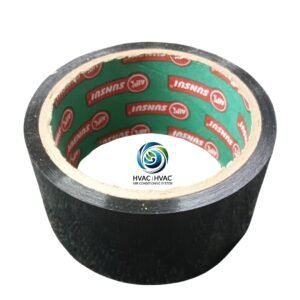
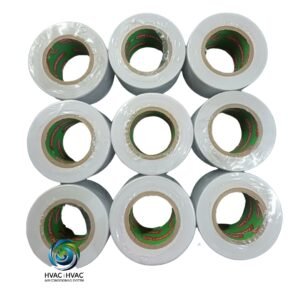

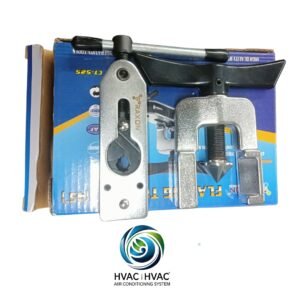
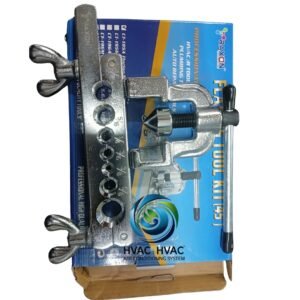

Add comment